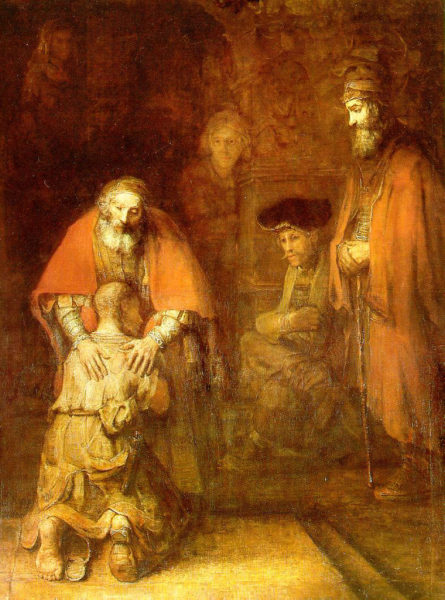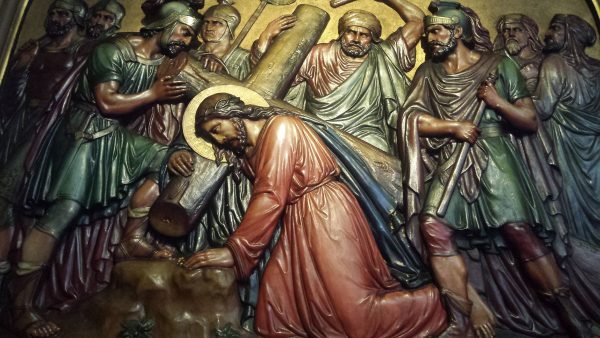In adulthood, facing Lent can sometimes now seem like a dim prospect. The weather is gray and cold. The weeks seem long. The last thing our current culture wants us to do is to focus on denial of the self in the name of deepening our relationship with our Creator. But for Catholics who choose to embrace this season, there is community and a chance for reflection that reminds us of brighter days ahead.

“I think Lent is important for Catholics because it’s a time set aside each year where we’re able to engage in the realities of the tougher side of life and the suffering that is inevitable in any person’s life,” said Nick Mayrand, director of the Department of Formation and Mission for the Diocese of Wheeling-Charleston.
“As Catholics, we try to find ways to unite that with the suffering Jesus endured. We can really dig into some of the deeper meaning of life and our struggles. Throughout Lent, we have our eyes on the Resurrection, too. It’s not meaningless suffering, because there’s an answer on the horizon.”
Uniting in that suffering can sometimes mean giving up something meaningful or pleasant, like chocolate or a cold beer after work. It can also mean breaking a habit that we know isn’t benefiting us spiritually.
“When it comes to fasting, some people fast from social media, or from participating in gossip,” says Jeanne McKeets, department administrative assistant. “My best friend fasts from picking up fast food during Lent. There’s other stuff to fast from besides candy or sweets.”
Giving up these objects or actions clears the way for us to stop and consider why we want to consume them in the first place and allows us to rely on prayer to see us through that moment. Those little moments can then add up to a larger realization that we can take with us after Easter has come and gone.
“We don’t go looking for suffering, but when it does come to us, where we imitate Jesus, we’ve spent these 40 days sacrificing in small ways, so that when a big thing happens, we can ask, ‘How do I embrace it the way that Christ embraced the cross?’” said Chris Bayardi, formation associate for Marriage and Family Life for the Diocese of Wheeling-Charleston.
“In our culture, we medicate, we run away, we ignore. How can we see this moment of suffering as redemptive, as purifying, and know that on the other side of this is the Resurrection not only of our own souls but the world’s?” Bayardi said.
Pretty deep, huh? I can assure you my 16-year old stomach wasn’t considering all that on fish fry Fridays. However, it’s in those fish fries and events like it that we find connection and a reminder that we are never alone, even when we suffer.
“Drive by any church and you’ll see signs for fish fries,” Mayrand said. “Oftentimes they’ll put out a clever sign like ‘our cod is an awesome cod,’ but behind the fishy smells and the cheesy signs, you do find really great times of community and joy amidst a tough 40 days. Everybody comes together in kind of embracing the mandatory fast. Like many things in life, it’s always easier to get by when you have a community around you.”
“You’ll see most parishes will celebrate the Stations of the Cross on Fridays or Wednesdays. Some parishes will add extra times for the Sacrament of Reconciliation,” Bayardi said. “Lent is the heavy period for people who are entering the Church through RCIA (Rite of Christian Initiation of Adults), so at Sunday Masses, the priest will say a little prayer, and parishioners and catechumens come together so we can pray together with the elect.”

As we move through what remains of these 40 days, there’s still time to dive into devotionals, join a faith-sharing group at your church or donate to a cause that means something to you. Mayrand said taking these steps to make Lent meaningful can bring on some much-needed rest as we reset for a new liturgical year.
“I think we are all kind of in a space in 2019 where we all know beneath the surface, we’ve got a lot of problems and a lot of brokenness,” he said. “For me, it’s a period of time where there’s a pressure let off of having to act like everything’s OK. It’s a time when we can dive into the difficulties and know that that’s part of the story of our faith. We’re embracing that and wrestling with it and seeking avenues to take it to God and know that we’re not in control of it.”



